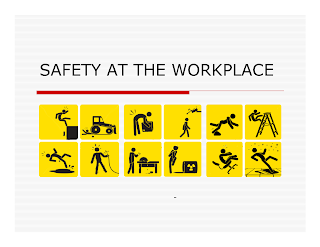Each year thousands of workers die in the workplace and thousands more sustain a serious injury – STILL. The need for safety in the workplace is not new and over the years hard lessons have been learned, but workers are still dying or becoming seriously injured. Technical Data used in the field explained in safety officer course in Rawalpindi. And, in order for us to better appreciate and serve in the capacity as a Safety Manager we need to have an understanding of Safety Terminology, The Importance of Safety, and Duties of a Safety Manager, Management’s Safety Role and the Role of the Safety Committee
Safety Terminology:
Safety is a term we hear more and more each day, at work and home. At work we hear about safety in the form of preventing accidents. In our home, safety implies a need for protection. And, if we look around we can find several definitions for the term safety by numerous authors. Some more details of safety officer course in Rawalpindi are as under. Webster’s Dictionary defines safety as “the state of being safe.” Beaver defines safety as “an ever-changing condition in which one attempts to minimize the risks of injury, illness, death or property damage in order to maximize success.” Hammer defines safety as “freedom from hazards.” National Safety Council defines safety as “the control of recognized hazards to attain an acceptable level of risk.” Tweedy defines safety as “human actions to control, reduce, or prevent accidental loss while still accomplishing the task.” Each of these definitions for safety recognizes the need for prevention and/or control.
However, before we can develop a working definition for the term safety we need to have a clear understanding of some other terms closely associated with safety: accident, hazard and risk. Accident is considered to be an unplanned disruption to the normal operation or process, which has the potential for producing injury, illness or property damage. Hazard is any existing or potential condition in the workplace or home that can result in an injury, illness, and death or property damage. Risk is the probability that a hazard will become an accident. Accident Proneness one who has a tendency to incur accidents, usually due to being uncoordinated. TSK Training for Skills and Knowledge is the best institute in Rawalpindi Islamabad for Pakistani Students who wants to join oil field after safety officer course in Rawalpindi.













